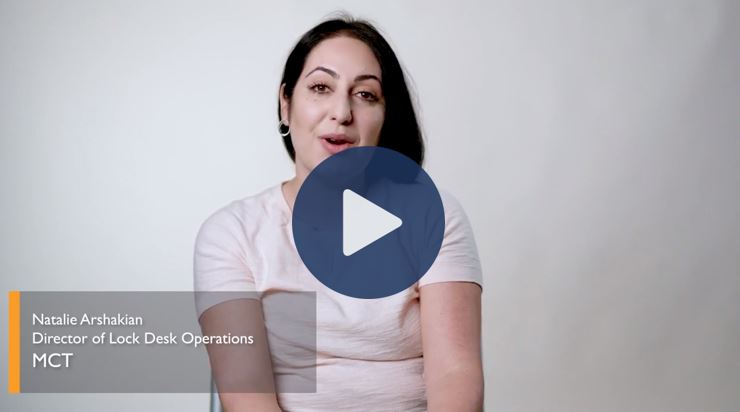COVID-19 has affected more than just people’s health; it has affected people’s ability to work and pay their mortgage.
In times of need, it’s best to protect your business from lending to borrowers who could potentially default on their loan due to quickly changing circumstances.
For these strategies, we tapped the expertise of MCT’s product and pricing group which operates a mortgage product and pricing engine.

To view all of MCT’s public volatility strategies, visit our dedicated Market Volatility Guidance for Lenders page.
Best Practices for Mitigating Secondary Market Volatility Risk
While the following five best practices strategies are written during the 2020 period of COVID-19-related market volatility, these recommendations may have application during other periods of financial uncertainty.

1. Implement Day of Funding Verbal Verification of Employment (VVOE)
Agency guides require lenders do a VVOE within 10 days of the note date, BUT given the current economic climate, a lot can change in 9 days. Day of funding VVOE should focus on borrowers not employed in the Department of Homeland Security’s designated 16 critical infrastructure sectors.
This will protect lenders from selling a loan to a client that could easily default on their loan. Employment status can very readily change from day to day in this economic environment, so be sure that the person you are lending to still has the job and income that qualified them to be eligible for the loan they agreed to pay.
2. Proactively Communicate to Avoid Loan Manufacturing Bottlenecks
Account for delays with your investors when selling loans to them. Being pro-active in hedging is key to avoid risk.
Inefficiencies brought about by the bottleneck often create delays and higher production costs when the company itself is not on the same page with the investor.


3. Be Aware of Local Ordinances that Can Affect the Viability of the Loan
These days we have many tools at our disposal online so it’s easy to find out who is an essential worker vs. non-essential worker, as well as learning about the local stay-at-home orders.
Underwriters will do well to do some due diligence online to determine if there are any concerns over the borrower’s circumstances, which may have changed and may impact the viability of the loan.
Each geographical area has a different stay-at-home order. Knowing what each state has enacted during COVID-19 helps to determine the impact (if any) on the loan being sold to investors.
4. Clarify Investors’ Stance on Loans that Request Forbearance
Different investors have different policies for a borrower requesting forbearance due to financial hardship during the COVID-19 crisis.
Some investors have no forbearance policy, but others do, and you may be liable to buy back that loan if borrowers claim forbearance.


5. Educate Borrowers About Mortgage Forbearance Policies
There are a lot of misconceptions about what mortgage forbearance means to a borrower. The CARES Act has a provision for borrowers experiencing financial hardship from COVID-19. Borrowers can request forbearance from the loan servicer, which puts a pause on their loan payments.
What borrowers must understand is that they will still have to pay back the full balance at a later date. The terms of paying back the balance must be agreed upon between the borrower and servicer to anticipate worst-case scenarios that could become realized.
We know this is a challenging time for your family, community, and the entire country.
As your trusted capital markets partner, MCT will continue to provide laser-focused guidance on market changes and their potential impact on your business during this time. It is our duty to serve your needs as a hedge advisor as we weather these challenges together.
Are You Getting the Guidance You Need?
 We hope you will find these operational best practices useful during time of market volatility.
We hope you will find these operational best practices useful during time of market volatility.
As your trusted capital markets partner, MCT provides laser-focused guidance on market changes and their potential impact to lending businesses during times of market volatility.
It is our duty to serve your needs as a hedge advisor as we weather these challenges together. If you are not currently getting the guidance you need, please contact us for any questions or concerns. We are happy to assist you, no matter your relationship with MCT.
To stay abreast of current market updates, sign up for MCT’s newsletter.
Related Articles:



